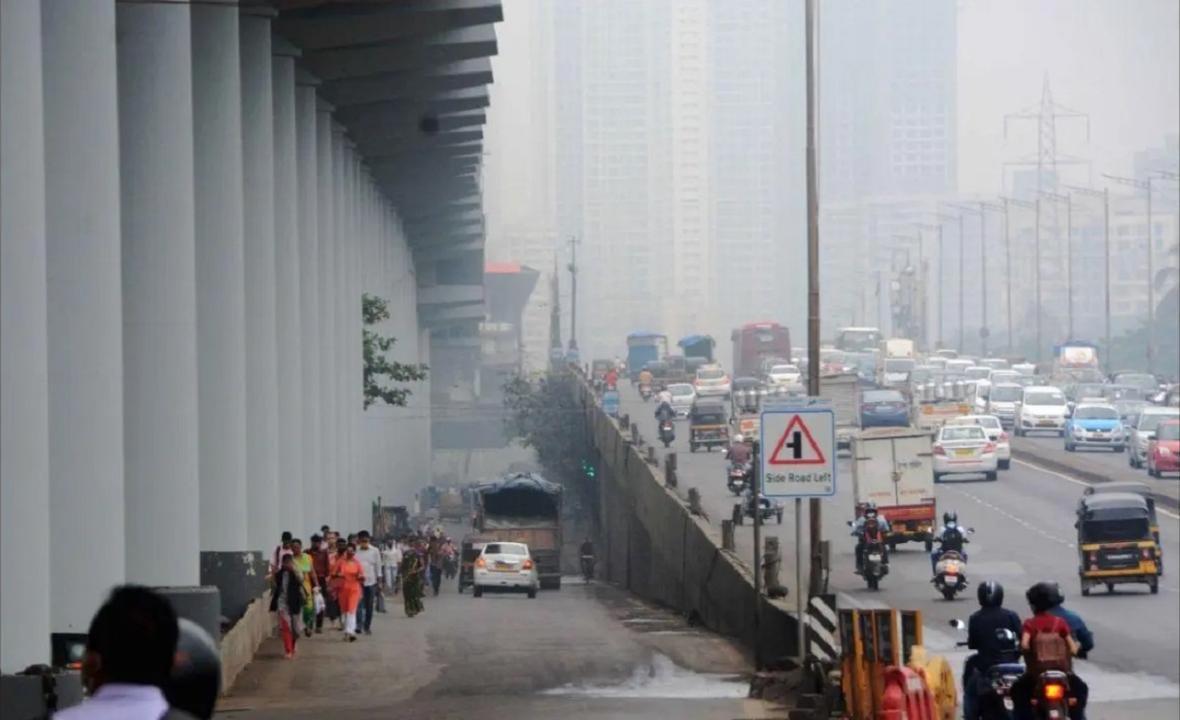The new study, detailed in the Annals of Internal Medicine, showed that the inhalation of traffic-related air pollution while in a car with unfiltered air was associated with a 4.5 mm Hg increase in blood pressure -- comparable to the effect of a high-sodium diet

Image for representational purpose only. Photo Courtesy: Satej Shinde
Breathing unfiltered air from rush-hour traffic can significantly increase passengers’ blood pressure up to 24 hours later, revealed an alarming study, even as New Delhi and the nearby regions of Gurugram, Ghaziabad have been gripped with bad air quality for about a month.
Long-term exposure to traffic-related air pollution -- a complex mixture of exhaust from tailpipes, brake and tire wear, and road dust -- has been linked to increased rates of cardiovascular disease, asthma, lung cancer and death.
The new study, detailed in the Annals of Internal Medicine, showed that the inhalation of traffic-related air pollution while in a car with unfiltered air was associated with a 4.5 mm Hg increase in blood pressure -- comparable to the effect of a high-sodium diet.
This change in blood pressure occurred rapidly, peaked within 60 minutes of exposure, and persisted over 24 hours.
“We know that modest increases in blood pressure like this, on a population level, are associated with a significant increase in cardiovascular disease,” said Joel Kaufman, a physician and professor of environmental and occupational health sciences at University of Washington, US.
“There is a growing understanding that air pollution contributes to heart problems. The idea that roadway air pollution at relatively low levels can affect blood pressure this much is an important piece of the puzzle we’re trying to solve,” he added.
But using high-quality HEPA filters in cars blocked out 86 per cent of particulate pollution, revealed the study. However, the findings raise questions about ultrafine particles, an unregulated and little-understood pollutant that has become a source of growing concern among public health experts.
Traffic-related air pollution contains high concentrations of ultrafine particles -- less than 100 nanometers in diameter, much too small to be seen.
In the study, unfiltered air contained high levels of ultrafine particles, though the overall level of pollution as measured by fine particle concentration (PM 2.5) was relatively low, equivalent to an AQI of 36.
"Ultrafine particles are the pollutant that were most effectively filtered in our experiment -- in other words, where the levels are most dramatically high on the road and low in the filtered environment,” Kaufman said. “So, the hint is that ultrafines may be especially important (for blood pressure). To actually prove that requires further research, but this study provides a very strong clue as to what’s going on," Kaufman said.
This story has been sourced from a third party syndicated feed, agencies. Mid-day accepts no responsibility or liability for its dependability, trustworthiness, reliability and data of the text. Mid-day management/mid-day.com reserves the sole right to alter, delete or remove (without notice) the content in its absolute discretion for any reason whatsoever.
 Subscribe today by clicking the link and stay updated with the latest news!" Click here!
Subscribe today by clicking the link and stay updated with the latest news!" Click here!








